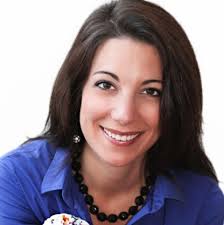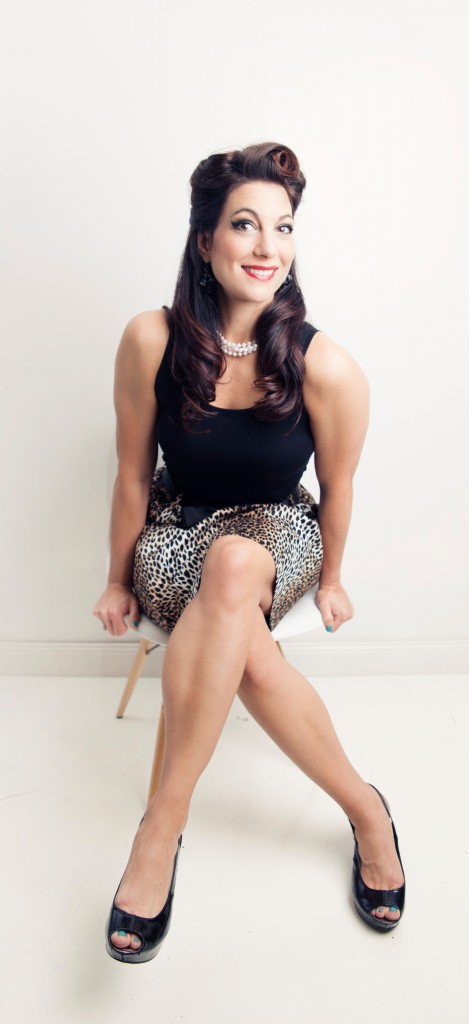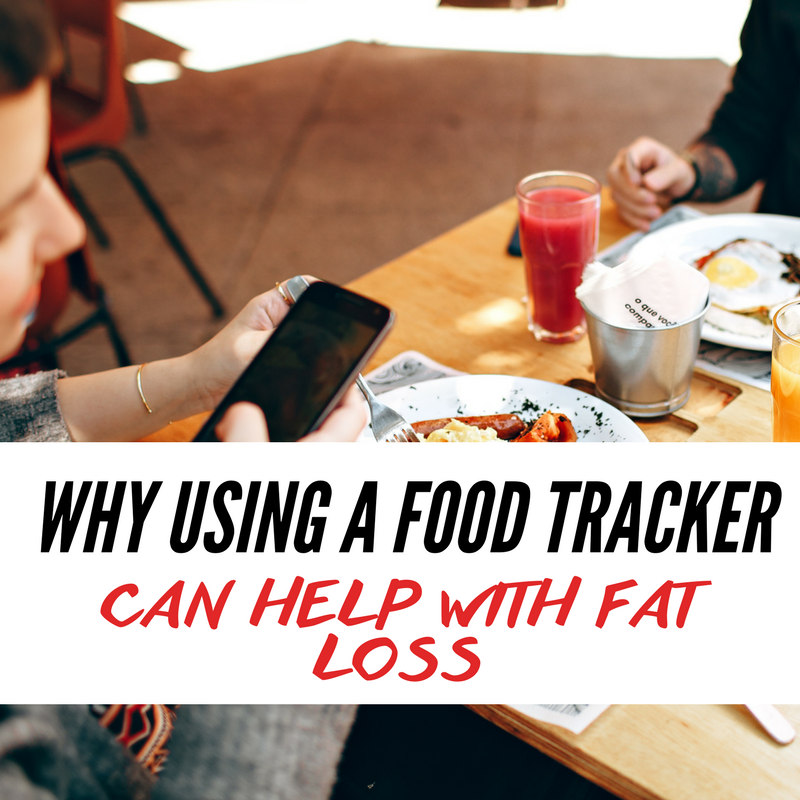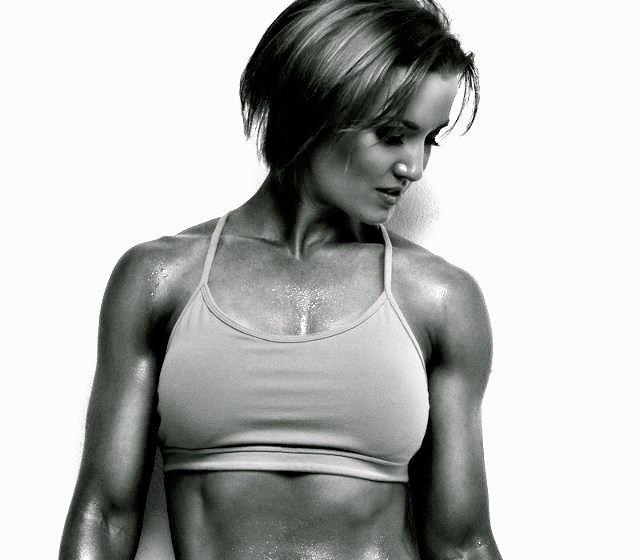I recently heard dietician/nutritionist, Leslie Schilling, speak at the NSCA National Conference. She instantly wooed me with her Southern drawl, love of food, and “anti-diet” approach (a dietician against diets?! What’s not to love?). Of course, I commenced to immediate stalking, and cornered her for an interview ;) ~Kiki
EM2WL: Your session at the conference “When Diets Don’t Work” focused on Binge Eating Disorder (BED). Can you explain to our readers what BED is?
Leslie: A diet, whether it is the first or fiftieth, could be the trigger to a life-altering or even life-threatening eating disorder. According to the National Eating Disorders Association, these illnesses can affect people of any race, age, sex, or size. Last year, the most common yet under recognized disorder received an official diagnosis code. Now those suffering with BED can no longer be overlooked. BED is associated with the following signs: recurrent binging (once a week for more than 3 months), eating larger than normal amounts of food in a short period of time, and lack of control during the binge episode. According to the Binge Eating Disorder Association, BED may affect 3.5% of women, 2% of men, and as many as 40% of all those seeking weight loss treatments.
EM2WL: Other than lack of purging/excessive exercise, what separates BED from Bulimia and Anorexia?
Leslie: There is no compensatory behavior like over exercising, restricting or “getting rid” of food (purging in any way).
EM2WL: I wonder if it is possible to have this disorder and not know it. A lot of people refer to “cheat meals,” justifying overeating on the weekends after “being good” all week. Does this type of diet mentality have any bearings on developing BED?
Leslie: Yes, it is possible to have BED and not realize it. Dieting over the years, as well as a common culture of “diet-mentality,” may mask an underlying problem. Many of us overeat from time to time, and even eat when we are not hungry. Those with binge eating disorder, however, eat for reasons not always associated with hunger. For example, people suffering from BED may use food to reward themselves, or to escape emotions associated with grief or anxiety, stressful situations, anger, hurtful memories or even past traumas.
My philosophy about “cheat meals” is simple. If what you’re doing requires that you “cheat,” I don’t believe it’s a sustainable or healthy. You could absolutely be eating better than you once did, but perspective matters. I believe in an 80/20 approach which I define as eating whole and low-ingredient foods most of the time and comfortably blending it with pleasurable foods that may or may not have a high nutritional value. Like, I have this thing with cupcakes…
My philosophy about “cheat meals” is simple. If what you’re doing requires that you “cheat,” I don’t believe it’s a sustainable or healthy.
EM2WL: Would you consider an overindulgence, say eating an 2 or 3 servings of a favorite dessert, a binge? How can we distinguish between an overindulgence v a binge?
Leslie: It’s possible I could eat two cupcakes here and there. I likely over-indulged and won’t do that again for a long time. A binge may look like 4, 6, or even a dozen cupcakes but it really depends on the person and the motivation.
Here’s an example—If I eat an extra cupcake because Aunt Betty makes amazing strawberry cupcakes, it may be a simple indulgence. If I’m eating 2, 4, etc.. of Aunt Betty’s cupcakes because my boss said something horrible to me—I’m “using” food and therefore, potentially binging.
EM2WL: The term ’emotional eating’ is used quite a bit with regard to challenges faced when trying to lose weight. Is this just another label for BED?
Leslie: Normal eaters sometimes eat for emotional reasons vs. physiological hunger. However, when you find yourself eating for reasons other than hunger frequently, it’s possible there could be some form of disordered eating going on, like BED.
If someone is over “using” food, it’s possible to teach them the tools to recognize and redirect those behaviors. Once they improve those behaviors, it’s very likely that weight loss becomes a side-effect.
EM2WL: You mentioned that if the shame-based approach worked, that the problem might not be as widespread. How does the media, trainers, friends, or parents contribute to the shame-based approach to fat loss? And how does that play into BED?
Leslie: Many of us who work in the field of disordered eating say “if shame worked, no one would have a weight issue.” Making someone feel bad about themselves is NEVER productive. Our “war” on obesity has become a war against people, real people, like you and me, with real life problems. I like to think you catch more flies with honey. Being caring and non-judgmental opens the door to sustainable change. Here’s one of my favorite quotes.
Nobody really gets anywhere “shouldn’t’” on themselves. When we feel the pressure to change things like our bodies, our diets or exercise routine, it’s important that trainers, dietitians, parents, health professionals, etc… use an approach that moves someone towards making healthy decisions for themselves. I rarely support someone’s goal of “weight loss.” I discuss what’s going on with their food, lack of food, over “use” of food, and help them set goals that promote lasting healthy behaviors. If someone is over “using” food, it’s possible to teach them the tools to recognize and redirect those behaviors. Once they improve those behaviors, it’s very likely that weight loss becomes a side-effect.
EM2WL: If someone suspects they might have BED is there anything they can do on their own to treat the disorder?
Leslie: It’s unlikely, yet not impossible. It’s about the food and NOT about the food at the same time. A successful team usually includes an experienced mental health professional along with an experienced dietitian (one who works with BED/emotional eating).
If you’re wondering if you may need a little help, you can absolutely start by helping yourself. Keeping a food journal (no calories, numbers, etc) to record when you eat, what you eat and how you’re feeling (am I hungry, angry, lonely, tired?). An individual non-judgmental investigation of how you’re using food can provide tremendous insight.
EM2WL: As a dietitian, what do you feel the biggest flaw is in the “eat less, workout more” philosophy?
Leslie: If it were as simple as eat less, work out more, I think most every person on the planet would have mastered the food and weight thing by now. We often assume it’s all about energy in and energy out. It’s not really when you think about all the other factors that influence our body weight & eating—emotions, endocrine issues, body types, dieting history, fitness levels, and so on…
I love giving this example. Say you have a 50 calorie snack and a 150 calorie snack. If you’re simply eating based on a quantity (calorie) approach, it’s very possible you’ll pick the fat-free, sugar-free chemical soufflé. If you eat based on a quality approach, you’re more likely to pick the higher energy choice—almonds—ingredient: almonds.
EM2WL: You have a new dinner menu service launching soon, deets please!! What awesomeness should we expect from Your Supper Solution?
Leslie: I’m incredibly excited about this launch! Earlier this year I’d enrolled in a business development course because I needed direction for my next steps as an entrepreneur. As you know, I’m a registered dietitian/nutritionist but I was stuck. This desire to do something that could positively impact people on a larger scale was really eating at me. I didn’t know if I needed to focus on expanding my private practice, speaking engagements, write a book, or what. The lack of clarity was incredibly frustrating.
As I was doing my homework (which I loved because I’m a total geek), it came to me. I rock planning a menu like nobody’s business and I realized that planning has been a major part of what I’ve been helping people with for the last 10 years.
Many people can cook, follow a recipe and shop but most HATE the planning. So, I’ve created Your Supper Solution—an online monthly membership service that delivers weekly dinner menus. It’s a balanced, back-to-basics, real food approach to getting supper solved! Menus roll out August 1st! Here’s a quick video about it.
EM2WL: Sweet! You know I’m already on the pre-launch list, lol. Where else can our readers read/see/hear more from you?
Instagram: http://instagram.com/leslieschilling
Facebook: https://www.facebook.com/NutritionLeslie
Twitter: https://twitter.com/NutritionLeslie
Pinterest: http://www.pinterest.com/leslieschilling/
Meal Planning Website: www.yoursuppersolution.com
Memphis-based Private Practice Website: www.schillingnutrition.com
Leslie is a master’s level, registered, and licensed dietitian/nutritionist who specializes in wellness, disordered eating, sports nutrition, and the prevention of chronic dieting. She received her Bachelor of Science and Master’s degrees from Appalachian State University in NC. Leslie owns Schilling Nutrition Therapy, LLC, a Memphis-based nutrition counseling practice, and is the creator of Your Supper Solution.
She is a member of Sport, Cardiovascular and Wellness Nutrition (SCAN), Behavioral Health Nutrition (BHN), Nutrition Entrepreneurs (NE) Practice Groups of the Academy of Nutrition and Dietetics (AND), the National Strength & Conditioning Association (NSCA), the Eating Disorders Coalition of Tennessee (EDCT), and The National Speakers Association (NSA).
Leslie has served as an adjunct instructor in the Graduate Nutrition Program at the University of Memphis. She has also been invited to provide her humorous, down-to-Earth nutrition programs and presentations to groups and professionals across the nation. In addition, she writes for local media, professional, and consumer publications. Whether it is through appearing on a television show, speaking to a crowd, or writing, Leslie inspires those she encounters to get back-to-the-basics with food and make self-care a priority through planning.
Discover more from Eat More 2 Weigh Less
Subscribe to get the latest posts sent to your email.








It is very helpful as well for us thank you for making this article. it is very informative and inspiring
Just wanted to tell you out of all the people i know I’m most proud of you! You’re amazing Leslie and i know you have more amazingness to come! AND I CAN’T WAIT!!! #urbiggestfan!